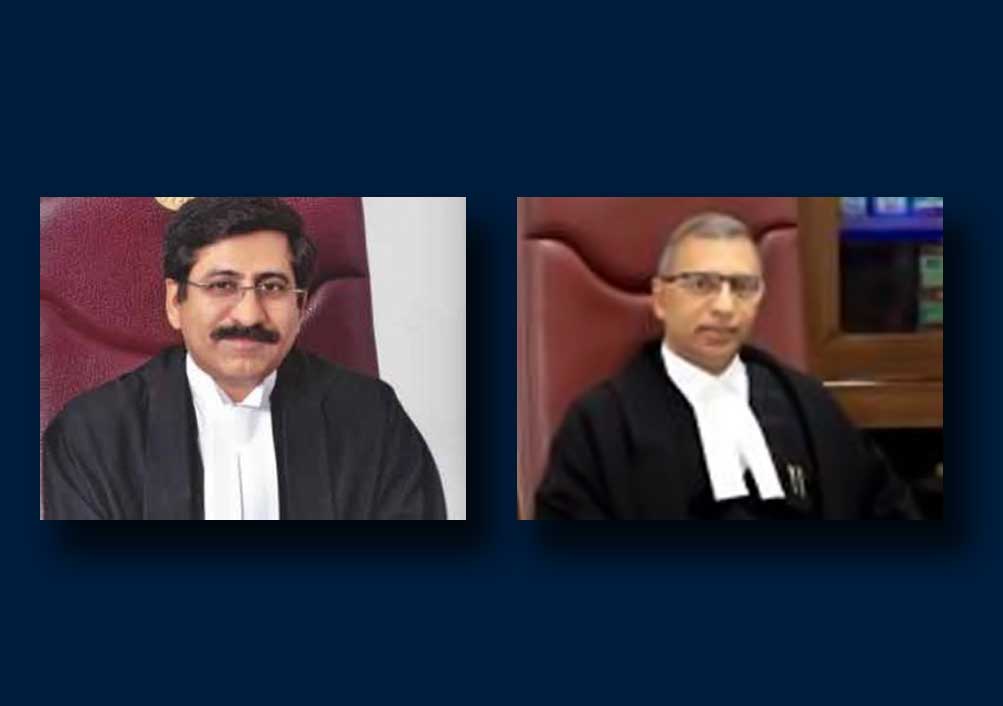In O.M.P.(T) (COMM.) 125/2022-BOM HC- Subject of bias & justifiable doubt is specifically dealt with in Sec.12 of A&C Act; Bias allegation would not fall within ambit of Sec.14(1)(a): Delhi HC
Justice Yashwant Varma [09-12-2022]

Read Order: UNION OF INDIA v. RELIANCE INDUSTRIES LIMITED AND ORS
Mansimran Kaur
New Delhi, December 12, 2022: It has been observed by the Delhi High Court that the subject of bias and justifiable doubts is clearly one which is specifically provisioned for in Section 12 of the Arbitration & Conciliation Act, 1996.
The Single-Judge Bench of Justice Yashwant Varma dismissed the instant petition by observing that that it failed to find any merit in the submission of the Counsel of the petitioner stating that the members of the Arbitral Tribunal had already prejudged the entire issue and relegating the petitioner to pursue the pending application would be an empty formality because of the same.
The Ministry of Petroleum and Natural Gas had instituted the present proceedings purportedly under Sections 14(2) read with Section 15(2) of the Arbitration and Conciliation Act, 1996 for a declaration that the majority of the members of the Arbitral Tribunal consisting of the Chairman Sir Michael D. Kirby AC CMG and Sir Bernard Rix, the two Arbitrators nominated by respondents, were de jure/de facto unable to discharge their functions and consequently their mandate stood terminated in terms of Section 14.
The arbitration proceedings emanated from a Production Sharing Contract (PSC) executed between the petitioner and the respondents which related to the development and production of gas from D1 to D3 gas discoveries falling in the D-6 block and marketing of gas in terms thereof.
The allegation in the present petition essentially was that the various procedural orders passed by the Arbitral Tribunal and the manner in which proceedings were conducted clearly led the petitioner to apprehend an evident bias and harboring justifiable doubts as to the independence and impartiality of the arbitrators. The petitioner alleged that the various procedural orders passed by the Tribunal would indicate that it had treated them unfairly, denied them reasonable opportunity and of favoring the cause of respondents- first to third.
After considering the submissions,the Court noted while Sections 12, 13 and 14 i.e. the trinity provisions, may be recognised as constituting a composite statutory scheme dealing with the subject of challenge to an arbitrator and termination of mandate, they clearly appear to construct separate causeways for a challenge that may be laid. While Sections 12 and 13 lay down the procedure for challenges which must mandatorily be mounted before the Arbitral Tribunal, Section 14 speaks of challenges that may be instituted before a court as defined under the Act.
The Bench was of the opinion that the Seventh Schedule does not deal with the aspect of justifiable doubts relating to independence or impartiality that may arise by virtue of the conduct of an arbitrator or the manner in which proceedings may be conducted by the Arbitral Tribunal at all. “
“It deals with disqualification by virtue of the arbitrator’s relationship with parties, counsel or the dispute and extending to situations where the arbitrator may be said to have a direct or indirect interest in the dispute. These non derogable disqualifications are predetermined and decreed by law”, the Court further noted.
On a conjoint reading of Sections 12, 13 and 14 of the Arbitration and Conciliation Act, 1996 the Court was of the considered opinion that it is the disqualifications set out in the Seventh Schedule alone which can be recognised as being the de jure disqualifications under the Act.
De jure, as is well settled, would mean something stipulated or prescribed by law or according to law. It would thus include disqualifications which would automatically render an arbitrator ineligible to be either appointed or to continue. These disqualifications would inevitably result in the termination of the mandate, the Court noted.
“The Court for the following additional reasons found itself unable to countenance the submission that a bias allegation would fall within the ambit of Section 14(1)(a) of the Act. The subject of bias and justifiable doubt is specifically dealt with in Section 12”, the Court further remarked.
If the Court were to accord an interpretation upon Sections 12 and 14 and treat such an allegation as falling within an overlap of the aforesaid provisions, it would not only be contrary to well settled rules of interpretation but would also clearly violate the evident scheme and intent of the Legislature, the Court opined.
The Bench failed to find any merit in the submission that the members of the Arbitral Tribunal had already prejudged the entire issue and that relegating the petitioner to pursue the pending application would be an empty formality because of the same.
The Court noted that the Chairman and the other member of the Arbitral Tribunal had unequivocally recorded that they, “subject to argument”, did not accept the allegations as levelled by the petitioner. In view of such observations, the petition was dismissed.
Sign up for our weekly newsletter to stay up to date on our product, events featured blog, special offer and all of the exciting things that take place here at Legitquest.




Add a Comment